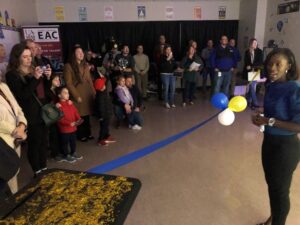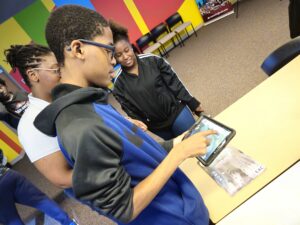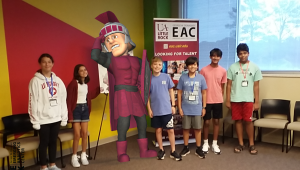January 25, 2019

Virtual Reality (VR) Isn’t Just For The Video Game Industry
VR opens up an amazing array of possibilities for the arts, sales, exhibits and more. For educational training, it allows for field training in areas we never imagined. Instead of engineering students creating bridge models out of toothpicks, why not build a model in VR and let it truly come to life.
In this podcast, Dr. Carolina Cruz-Neira scholar and faculty member at the University of Arkansas dives into VR opportunities for education. She takes us behind the curtain into her career progression, starting as a dancer, and her climb to develop CAVE (Cave Automatic Virtual Environment), an immersive VR system: think of it as a version of a holodeck (yes, like in Star Trek). Listen now to dive into the opportunities and challenges VR can bring.
Featured Luminary: Dr Carolina Cruz-Neira, Donaghey Distinguished Professor, Interim Chair of the Department of Computer Science, and Executive Director of Emerging Analytics Center, University of Arkansas at Little Rock
Dr. Carolina Cruz-Neira, a member of the National Academy of Engineering, is a pioneer in the areas of virtual reality and interactive visualization, having created and deployed a variety of technologies that have become standard tools in industry, government and academia. She is known world-wide for being the creator of the CAVE virtual reality system, which was her PhD work, and for VR Juggler, an open source VR application development environment.
Her work with advanced technologies is driven by simplicity, applicability, and providing value to a wide range of disciplines and businesses. She serves in many international technology boards, government technology advisory committees, and outside the lab, she enjoys extrapolating her technology research with the arts and the humanities through forward-looking public performances and installations. She is also recognized for having founded and led very successful virtual reality research centers, like the Virtual Reality Applications Center at Iowa State University, the Louisiana Immersive Technologies Enterprise and now the Emerging Analytics Center.
She has been named one of the top innovators in virtual reality and one of the top three greatest women visionaries in this field. BusinessWeek magazine identified her as a “rising research star” in the next generation of computer science pioneers; she has been inducted as a member of the National Academy of Engineering, an ACM Computer Pioneer, received the IEEE Virtual Reality Technical Achievement Award and the Distinguished Career Award from the International Digital Media & Arts Society among other national and international recognitions.






